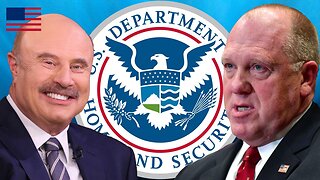Premium Only Content

LAZY CFOs: The Biggest Barrier to Group Health Plan Reform
Rosetta-type advisors are all over LinkedIn, saving employers money with direct contracting; yet most executives still naively rely on the BUCAH cartel
George Claasen - Advisor, Mitigate Partners
DPCFriendlyBroker.com
The ability of employers under a certain federal law called ERISA, to self-fund innovative arrangements, has led the market in health plan reform. Unfortunately, the complexity of health benefits has allowed top firms to convince CFOs to just rely on insurance companies to take care of worker health needs. But expecting any savings from the insurance cartel is like expecting politicians not to run our government into the ground.
And it’s not like health insurance agents don’t risk incarceration for continuing to allow BUCAH - Blue Cross, United, Cigna, Aetna, and Humana - to hike business health plan costs every single year. Similar agents – selling subpar 401Ks – are facing lawsuits based on ERISA’s fiduciary requirement to act in the interest of their client company.
Only the so-called “Rosetta”-type advisors are taking their fiduciary duty seriously, and their results prove their superiority to the cartel. Using a combination of Direct Primary Care, direct-contracted hospitals, Ambulatory Surgical Centers, cash-based imaging and lab vendors, and other local services, advisors like Mr. Claasen are saving employers big money every year. Workers love the results, too, because their out-of-pocket liability shrinks to zero.
What lessons can reformers, agents, healers, patients, and executives gain from the Rosetta movement?
-
 1:02:34
1:02:34
Health Biz and Politics
6 days agoHealthCare Pricing Changes Everything
58 -
 1:18:15
1:18:15
Mally_Mouse
3 hours agoLet's Yap About It - LIVE!
18.2K2 -
 LIVE
LIVE
ZWOGs
5 hours ago🔴LIVE IN 1440p! - Learning Heroes in Marvel Rivals, Helldivers 2, Then what? - Come Hang Out!
140 watching -
 16:38
16:38
SLS - Street League Skateboarding
8 days agoRayssa Leal's Most Clutch SLS Wins Ever! 🥶🏆
34.3K1 -
 1:53:02
1:53:02
Russell Brand
5 hours agoRFK Confirmation Battle – The Deep State is Losing Control! – SF528
157K163 -
 2:58:09
2:58:09
The Charlie Kirk Show
5 hours agoThe RFK Confirmation Hearing + Dr. Phil On A Raid | Dr. Phil, Mansdoerfer | 1.29.2025
187K42 -
 4:41:31
4:41:31
Right Side Broadcasting Network
1 day agoLIVE REPLAY: RFK Jr. Testifies at Senate Confirmation Hearing for HHS Secretary - 1/29/25
271K317 -
 28:22
28:22
Stephen Gardner
5 hours ago🔥Sen. Lindsay Graham BETRAYS TRUMP, calls for investigation!
45K96 -
 1:00:33
1:00:33
The Dan Bongino Show
7 hours agoTruth Returns To The White House Press Room (Ep. 2411) - 01/29/2025
738K1.61K -
 1:01:33
1:01:33
Grant Stinchfield
5 hours ago $6.73 earnedVague Details: An Effort to Avoid Panic Over Drones & "The Research"
54.8K13